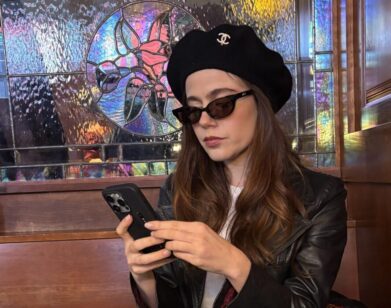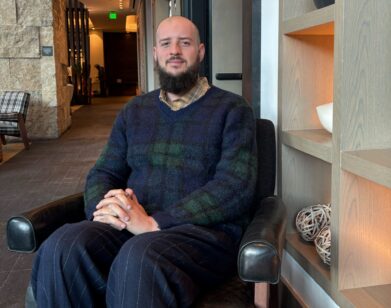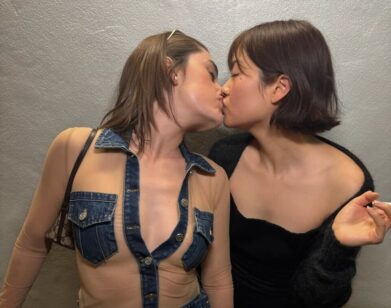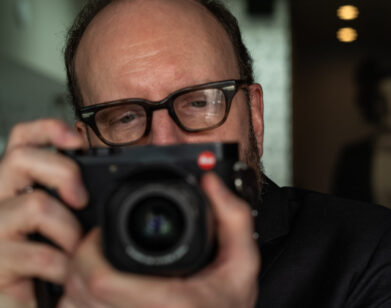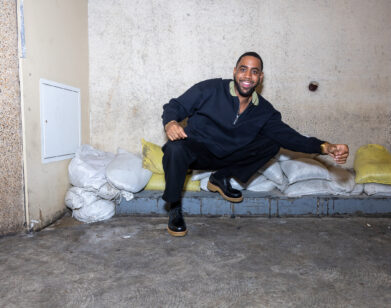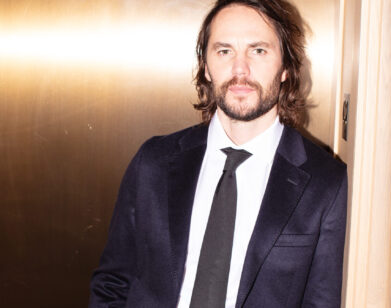Emily Blunt Gets the Royal Treatment
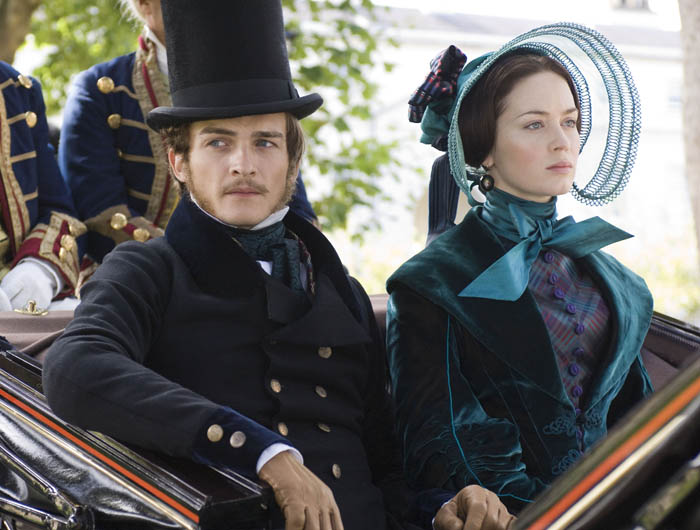
Rupert Friend and Emily Blunt in The Young Victoria, courtesy of Apparition
The Young Victoria (out in the US this Friday) is a piece of historical revisionism. Neither a sweeping history of a monarch, nor the conventional image of the severe and reticent Queen Victoria, the film instead offers an intimate portrait of a spirited, defiant, and often-overlooked girl. Emily Blunt, best known for her role as the striving assistant in 2006’s The Devil Wears Prada, captures the dual existences–private and public– of the young sovereign. Eshewing the stuffiness of nineteenth century period pieces, writer Julian Fellowes and director Jean-Marc Vallée aimed to give an old story a more modern, dynamic telling. At its center is the intense, devoted relationship between Victoria and Prince Albert (Rupert Friend).
Some post-screening research on my part revealed that, under England’s 1830 Regency Act, Victoria’s mother, the Duchess of Kent, was initially placed in charge of the Empire, making decisions for her daughter until she turned eighteen. I met Emily in room 1831 of Park Avenue’s Regency hotel, where the actress greeted my geeky fact-sharing with an excited “Oh my God!” In keeping with her initial enthusiasm, our conversation ranged from her initial embracement of the script to the film’s transformation of historical hang-ups.
DURGA CHEW-BOSE: How was it portraying a crisper version of Queen Victoria rather than the dour, dressed in black woman, audiences are more familiar with?
EMILY BLUNT: I too only knew about the old lady looking grim and repressed. And that really wasn’t what she and Albert preached. She was incredibly highly-sexed for one thing. She certainly wasn’t repressed in those terms–you know, they had nine kids! I remember reading about her saying to her doctor that she hated being pregnant, absolutely hated it. And the doctor said to her after her ninth child, “I think this needs to be the last one. Do you know what I’m trying to say?” And she said, “Yes, no more fun in bed.”
CHEW-BOSE: That’s a very modern thing for her to admit to, about being pregnant.
BLUNT: Yeah, she was a modern girl. But that’s also the mistake that I think people make about making historical dramas. We have this ethereal view of what they were like, but maybe they weren’t. And that was my argument on set when I’d sit a certain way. We’d have the historical advisors flapping for a moment. And then I’d just say, “Prove it to me. Prove it to me that she wouldn’t have slouched back in her seat.”
CHEW-BOSE: You were playing Victoria at home, but you were also performing her in public. Essentially, you were playing two roles.
BLUNT: That’s what I loved about the script. People would talk about her being quite hard to read and ambiguous and there was something quite powerful in that. She was this diminutive little thing, yet she emanated quite a lot of power. I loved that anything she was feeling, either fear, or intimidation or pride, happiness, sadness, she submarined it. It’s great as an actor to have so much to play with.
CHEW-BOSE: Did you worry that, in trying to move away from the typical portrayal of the period, the cliché of the trapped young royal with a rebel’s heart would surface instead?
BLUNT: I felt that she was quite different in that yes, she was rebellious, but the existence that she led before and how she fought against that and overcame it. She had such a lonely, oppressive childhood, and that’s what I liked about her. It wasn’t for the sake of being rebellious, the sake of being spoiled. The context in which she was trying to rise from was what was interesting to me, and that she felt “Why the hell should I relinquish any of this power? I’ve been completely manhandled my entire life!” It wasn’t just a teenage, casual, cavalier, attitude she had. I felt like she really warranted it.
CHEW-BOSE: I had wondered about the “correctness” involved in filming a historical, period piece.
BLUNT: We were definitely very specific with the etiquette and the way you curtsy and bow, and the order in which you greet people. But I felt the private moments had to be my own creation.
CHEW-BOSE: The script was original in that way.
BLUNT: He’s clever, Julian. His wording of things is very succinct. He doesn’t over-flower the dialogue, because that could just push people so far back.
CHEW-BOSE: There was a lot of intention, though never overwrought and overbearing; especially with the use of mirrors and reflection.
BLUNT: Jean-Marc was really clever like that. I’m glad you picked up on the mirrors because he wanted to create that world of “all eyes upon her” and the dual existence of her life. The aesthetic of the film was all really emotionally thought out. He’s a genius like that.
CHEW-BOSE: I was hesitant, not being a huge fan of period pieces, but…
BLUNT: Everyone has misgivings about those sorts of things. People are like “Ew God, another period drama…it’s going to be boring and tame…”
CHEW-BOSE: And it wasn’t unnecessarily racy either. Like, “behind closed palace doors…”
BLUNT: I know! That always bums me out as well! Like really, guys? All that bodice whipping that goes on…Or some frenzied tussle in the corner of the castle!
CHEW-BOSE: How heavy was that crown?
BLUNT: Oh it was so heavy. It was surprisingly heavy. To the point where I felt like my neck shortened. I think I lost two vertebrate wearing it.
CHEW-BOSE: Considering how close you felt to the project, what was most challenging?
BLUNT: Honestly, I found it difficult to work against the world that you create, to work against that sweeping world. It’s so different from anything else that I’ve ever experienced. I’ve no idea what it’s like to be Queen. I had no idea what it was like to wear those clothes. They feel very alien on you. It could sort of throw you for a minute and you have you remember at the end of the day that these characters just need to–it’s going to sound very American–but need to communicate. Otherwise it’s just a fashion show.
The Young Victoria will be released in the US December 18th.

